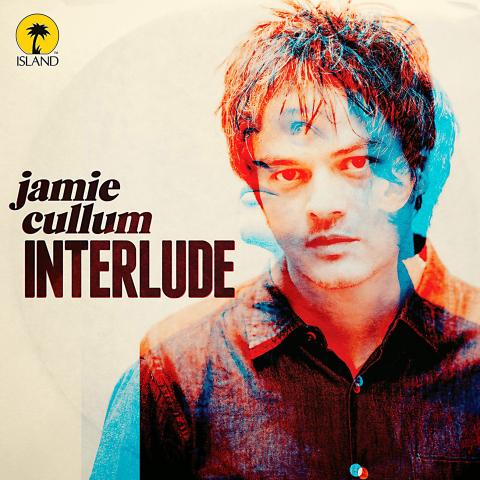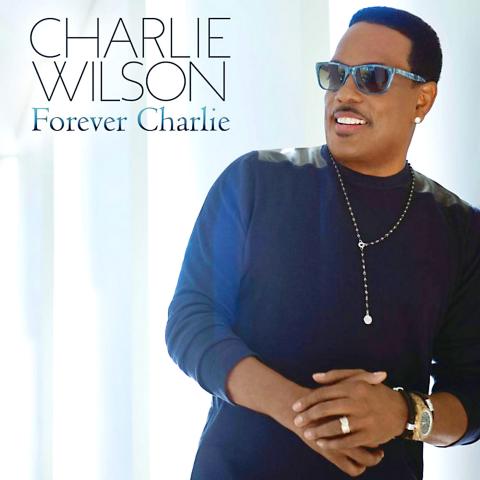Interlude
Jamie Cullum
Island/Blue Note

There’s an implicit warning in the title of Jamie Cullum’s standards album, Interlude. In case it needs spelling out, the title track — a Dizzy Gillespie tune recorded by Sarah Vaughan, before it became the bebop instrumental Night in Tunisia — opens the album with lyrics about an ardent but fleeting love. “The magic was unsurpassed,” Cullum sings, drawing out his vowels. “Too good to last.” Right: Don’t get too attached.
Cullum, 35, has spent the past decade or so as the rare singer-songwriter to find big success at the crossroads of jazz and pop, equipped with his raffish charm, his limber voice and his uncorked energies onstage. Interlude has been marketed as his return to jazz, which is true insofar as its repertory skews heavily toward the American songbook, with spruce acoustic arrangements.
You could know just that much about the album and dismiss it out of hand, but Cullum has dodged most of the usual pitfalls, proceeding with respect (but not too much) and a spirit of license (within clear bounds). Crooning Rat Packish ballads like Make Someone Happy and Come Rain or Come Shine, he can still suggest a junior Harry Connick Jr, accentuating emotional connection over vocal technique.

What makes Interlude a far more interesting proposition are its less obvious choices, starting with the personnel. Rather than recording the album with his usual sidemen, Cullum enlisted Benedict Lamdin, a producer also known as Nostalgia 77, to put together a band. Many of the tracks were recorded in a single room; some, like a euphoric strut through Ray Charles’s, Don’t You Know, were done in a single take.
It’s probably no accident that Cullum, a British musician weaned on rock and hip-hop, envisions an American songbook that includes Don’t You Know. Along similar lines, he’s duly sensitive on Randy Newman’s Losing You and smartly outfits a Sufjan Stevens song, The Seer’s Tower, with an arrangement inspired by Nina Simone.
Also coming from the Simone playbook is Don’t Let Me Be Misunderstood — performed as a duet with Gregory Porter, who sounds so much more hale and soulful that the track’s inclusion almost counts as self-sabotage.
Cullum fares better with Laura Mvula on Good Morning Heartache: The two singers move with careful grace, like new partners circling a dance floor, neither making any promises about sticking around.
Forever Charlie
Charlie Wilson
P Music/RCA
This is the pop-music moment of Women Are More Interesting, and in related news the grown-up, heart-wounded masculine R&B tradition has gone into a blind stagger. The romantic sensitivity of the middle-aged male is not a trending topic.
But here comes Charlie Wilson running into the room in his white suit. He’s laughing and whistling, with a lithe voice full of authority and cultural memory, and he could lord it all over you, but he won’t. He’s going to create mobility and flexibility. He’s going to stir up the molecules and raise the happiness.
Wilson, once the singer of the Gap Band, now an old-school talisman for Snoop Dogg, Pharrell Wilson, Kanye West and Bruno Mars, makes decent R&B records and remains a total treat as a live act; in both cases, he reminds you of his past as an important link between the epic, chanting funk of the 70s and the clipped, efficacious, electronic funk of the 80s.
His most hardheaded comeback record of recent years, Charlie, Last Name Wilson, produced in 2005 by R. Kelly, put him forward as a smooth player — a cliche that at this point would seem too sad and lonely for someone like Wilson. His new album, “Forever Charlie,” stays aboveboard.
He’s going to praise you. He’ll assure you that he loves your good-night kisses. He’ll compliment your birthday dress — without innuendo — and sing “It’s your party, you can dance all you like.” He’s going to compare you to a priceless masterpiece, a glass of lemonade and, best of all, “that good potato salad.”
In sound, Forever Charlie plays lightly with nostalgia, befitting someone who suggests the indefinite past. The standout songs tend to be produced by the Cartoons, who go in more heavily for updating old-school details — Gap Band grooves, vocoders, 1950s-ballad triplets — and Jimmy Jam and Terry Lewis, who take hard right turns like putting sequencers and keyboard sounds on Things You Do to make you think of the Miami Vice soundtrack. You don’t necessarily see that coming. Here’s what you do see coming: A cameo by Snoop Dogg (on Infectious) and an easy-tempo reggae tune with Shaggy (Unforgettable). It doesn’t matter; they don’t hurt anything.
Above all, Wilson keeps it light. What a relief! A great singer who knows it’s not all about him.

As we live longer, our risk of cognitive impairment is increasing. How can we delay the onset of symptoms? Do we have to give up every indulgence or can small changes make a difference? We asked neurologists for tips on how to keep our brains healthy for life. TAKE CARE OF YOUR HEALTH “All of the sensible things that apply to bodily health apply to brain health,” says Suzanne O’Sullivan, a consultant in neurology at the National Hospital for Neurology and Neurosurgery in London, and the author of The Age of Diagnosis. “When you’re 20, you can get away with absolute

When the South Vietnamese capital of Saigon fell to the North Vietnamese forces 50 years ago this week, it prompted a mass exodus of some 2 million people — hundreds of thousands fleeing perilously on small boats across open water to escape the communist regime. Many ultimately settled in Southern California’s Orange County in an area now known as “Little Saigon,” not far from Marine Corps Base Camp Pendleton, where the first refugees were airlifted upon reaching the US. The diaspora now also has significant populations in Virginia, Texas and Washington state, as well as in countries including France and Australia.

On April 17, Chinese Nationalist Party (KMT) Chairman Eric Chu (朱立倫) launched a bold campaign to revive and revitalize the KMT base by calling for an impromptu rally at the Taipei prosecutor’s offices to protest recent arrests of KMT recall campaigners over allegations of forgery and fraud involving signatures of dead voters. The protest had no time to apply for permits and was illegal, but that played into the sense of opposition grievance at alleged weaponization of the judiciary by the Democratic Progressive Party (DPP) to “annihilate” the opposition parties. Blamed for faltering recall campaigns and faced with a KMT chair

A police station in the historic sailors’ quarter of the Belgian port of Antwerp is surrounded by sex workers’ neon-lit red-light windows. The station in the Villa Tinto complex is a symbol of the push to make sex work safer in Belgium, which boasts some of Europe’s most liberal laws — although there are still widespread abuses and exploitation. Since December, Belgium’s sex workers can access legal protections and labor rights, such as paid leave, like any other profession. They welcome the changes. “I’m not a victim, I chose to work here and I like what I’m doing,” said Kiana, 32, as she